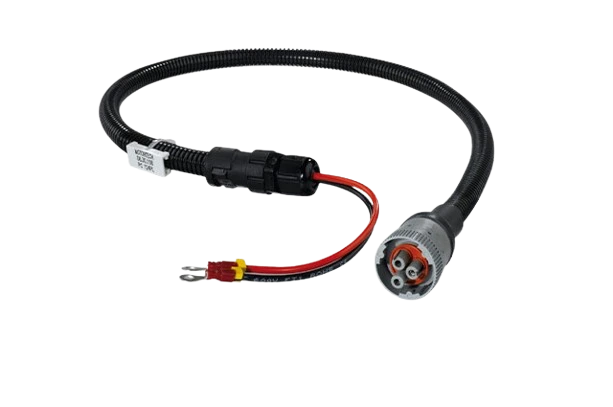Get A Quote
BIS Certification for Primary Lead IS 27:2023

Primary Lead is a crucial metal used
across a variety of industries, from batteries and construction to radiation
shielding and cable sheathing. Given its widespread applications and
importance, ensuring the quality of primary lead is essential. To maintain the
highest quality and safety standards, the BIS certification for Primary Lead has
now become mandatory in India.
In this blog, we'll dive into the details of the BIS certification process, the role of the Indian Standard for Primary Lead (IS 27:2023), and the implications of the latest government regulations for manufacturers. We'll also explore the benefits of obtaining ISI certification for Primary Lead and displaying the trusted ISI mark.
Important Update: Refined
Primary Lead (Quality Control) Order, 2025
In an important move to strengthen
quality control, the MINISTRY OF MINES issued the Primary Lead (Quality
Control) Order, 2025. Under this order, manufacturers of Primary Lead are now
mandated to obtain BIS certification for Primary Lead. Additionally, all
certified products must bear the Standard Mark (ISI mark) under a license from
the Bureau of Indian Standards, following Scheme-1 of Schedule-II of the Bureau
of Indian Standards (Conformity Assessment) Regulations, 2018.
This regulation ensures that only high-quality, standardized primary lead products are manufactured, imported, and sold within the country, protecting industries and consumers alike.
Also Read
BIS QCO for Primary LeadWhat is BIS Certification
for Primary Lead?
The Bureau of Indian Standards (BIS)
is India's national body responsible for establishing and enforcing quality
standards across multiple sectors. The BIS certification for Primary Lead
confirms that the material complies with the specifications outlined in IS
27:2023.
Manufacturers who secure this certification are allowed to use the ISI mark on their products — a mark recognized throughout India as a symbol of trust, quality, and compliance.
Understanding IS 27:2023 –
The Indian Standard for Primary Lead
The Indian Standard for Primary Lead
(IS 27:2023) lays down comprehensive specifications covering:
Compliance with IS 27:2023 ensures that the primary lead produced or sold in India is of consistent, high quality and fit for various critical industrial applications.
Why is ISI Certification
for Primary Lead Important?
Obtaining the ISI certification for
Primary Lead offers numerous advantages:
How to Obtain BIS
Certification for Primary Lead
Obtaining BIS certification for
Primary Lead involves the following steps:
- Application
Submission: Submit the completed application
form with necessary documentation to BIS.
- Document Review: BIS evaluates the submitted documents to verify accuracy and
completeness.
- Factory Inspection: BIS officials conduct on-site inspections to assess
manufacturing processes and quality control systems.
- Sample Testing: Product samples are collected and tested at BIS-approved
laboratories to verify compliance with Indian standards.
- Certification Grant: Upon successful inspection and testing, the BIS issues the certification, allowing the use of the ISI Mark.
Documents Required for BIS Certification
To apply for BIS certification, manufacturers need to submit the following documents:
● Application form
● Manufacturing process details
● Quality control plan
● Test reports from BIS-approved laboratories
● Factory layout and equipment details
● Proof of business registration
● Product specifications and technical details
● Declaration of conformity to Indian standards
Additionally, manufacturers may be required to provide proof of compliance with environmental and safety regulations, depending on the specific type of product being certified.
BIS ISI Mark Certification Costing And Timeline
To Know The Process in Detail, Please Visit:
Under BIS Registration Products ISI and CRS
Conclusion
With the introduction of the Primary
Lead (Quality Control) Order, 2025, obtaining the BIS certification for Primary
Lead is now a legal necessity. By aligning products with the Indian Standard
for Primary Lead (IS 27:2023) and securing the ISI certification for Primary
Lead, manufacturers can ensure market compliance, gain customer trust, and
enhance their competitive position.
Displaying the ISI mark certification
not only affirms a commitment to quality but also ensures the long-term success
and credibility of businesses in the evolving industrial landscape.
Free Call Back
Latest News & Update
📅 BIS Critical Component List (CCL) Updates for Solar PV Modules
🕒 BIS Fee Concessions for MSMEs and Startups | EVTL India
📅 Guidelines for Implementation of Essential Requirements for Security of CCTV
🕒 Omnibus Technical Regulation (OTR) Amendment Order, 2025
🕒 Extension of Timeline for Filing Annual Returns by Battery Producers
📅 Extension of Timeline for Filing Quarterly and Annual Returns for E-Waste
🕒 Extension of Concurrent Running Period for IS 302-1: 2008 and IS 302 (Part 1): 2024
🕒 BIS Guidelines for Grant of Licence (GoL) | EVTL India
📅 CPCB Guidance on filing of Application, Fees and more
🕒 CPCB Notification on Labelling of Plastic Packaging
📅 Mandatory Compliance for Input Materials of Steel and Steel Products for Imports
🕒 BIS Guidelines for Scheme-X Certification for OTR-Regulated Products
📅 BIS Upgrades Product Certification License Numbers to 10-Digit Series
🕒 BIS Certification No Longer Mandatory for 14 Chemical & Polymer Categories
Why Choose EVTL INDIA
Expertise in Indian Regulatory Standards
End-to-End Support
Trusted by Top Indian & Global Brands
Fast Processing & Transparent Pricing
Strong Liaison with Indian Authorities
Company Profile














